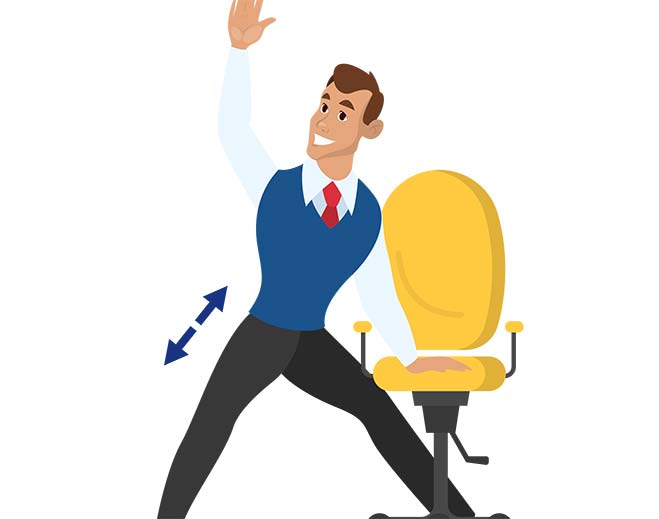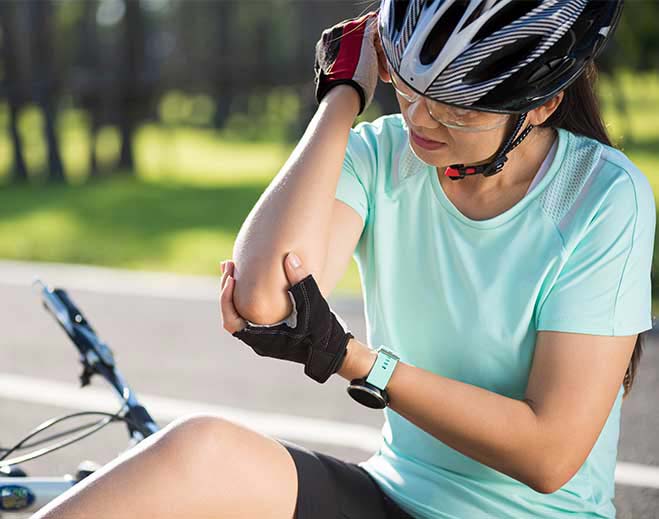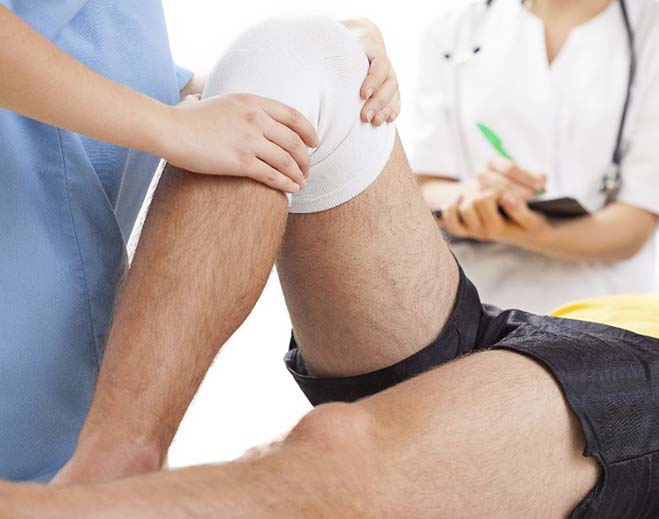Sports Medicine
Recover Faster from Sports Injuries
Athletes and non-athletes may be able to discover pain relief and increase mobility through the sports medicine program in Tucson, AZ. Our team of doctors, nurses, physical therapists, rehabilitation specialists and sports and orthopedic specialists work
together to help get you back in the game and restore your quality of life. We offer:
- Assessments and therapies to restore and enhance movement and agility
- Nonsurgical treatment options such as medication or physical therapy, depending on your condition or injury
- Minimally invasive surgical treatment procedures, if necessary
- Comprehensive, customized orthopedic rehabilitation services
Sports medicine and orthopedics at Carondelet Health Network help you recover from injuries and return to the activities you love. We’ll develop a customized care plan, whether it’s a torn ligament, sprain or another injury. Our goal is to
help you return to sports ready to finish strong.
Carondelet Health Network’s Sports and Orthopedic Specialists
Our Arizona orthopedic and sports medicine specialists have experience in treating and preventing sports- and exercise-related injuries. They are also called sports medicine physicians, sports injury doctors and sports orthopedic surgeons. Although sports
medicine specialists and sports orthopedic surgeons both treat musculoskeletal conditions, sports medicine specialists focus on the nonsurgical treatment of these conditions. On the other hand, sports orthopedic surgeons are trained in surgical treatments.
Most Common Sports Injuries
Almost any part of the body can be injured, but the ankles and knees are particularly prone to injury. There are two kinds of sports injuries, namely:
- Acute traumatic injuries- This injury happens after a blow or force, such as getting tackled in football or wiping out while skateboarding.
- Overuse injuries- Also called chronic injuries, this injury happens over time from repetitive training. These injuries may not be serious at first, but if left untreated, they may become a serious problem.
The knee is composed of bones, cartilage, ligaments and tendons. The knee joint relies on the ligaments for stability which makes the ligaments prone to injuries. Any contact to the knee or hard muscle contraction such as not training properly, training
too much or not wearing or using the proper footwear or safety equipment can injure the knee.
Sprains are injured ligaments and are graded on a severity scale:
- Grade 1 Sprains – when a ligament is mildly damaged; slightly stretched, but can still stabilize the knee
- Grade 2 Sprains – when a ligament is stretched to the point it becomes loose; a partial tear to the ligament
- Grade 3 Sprains – when a ligament has been torn in half or pulled directly off the bone; a complete tear of the ligament and the knee joint is unstable
Sprains are not the only injury one can get when playing sports or exercising. Here are some of the most common sports injuries:
- Sprains and strains – both involve stretching and tearing, but sprains occur on ligaments and strains occur on muscle tissues or fibers
- Knee pain – usually caused by sprain, strain or tendonitis and is common in contact sports
- Swollen joints – includes bursitis (inflammation of the bursa), tendonitis (inflammation of the tendon) and tennis elbow (inflammation of the tendon around the elbow joint)
- Achilles tendon injuries – a common injury among runners, Achilles tendon injuries are caused by damage or tightness of the Achilles tendon
- Pain along the shin bone – caused by the inflammation in the tissues surrounding the shin bone
- Rotator cuff injuries – when the rotator cuff breaks down
- Fractures (broken bones) – occurs during high-impact activities caused by tiny cracks in the bone as a result of repeated stress
- Dislocations – may be caused by a sudden fall or impact. Learn more about dislocations here.
Dealing With Sports Injuries
Accidents happen, and if you feel that you have a minor injury, you do not usually need to see a sports medicine physician and can do the following to ease the pain:
- Rest the affected part for 48-72 hours
- Regularly apply an ice pack to the affected area during the first 48-72 hours to reduce swelling
- Use over-the-counter pain killers such as ibuprofen to relieve pain
When you think your injury is more than a minor injury, the abovementioned does not ease your pain or the pain worsens, consult a sports medicine physician or go to the nearest sports medicine hospital if you experience:
- Severe pain
- Swollen injured area
- Limping
- Unable to move the injured area
- Pain is not getting better with rest, gets worse or lasts for a week or more
- Unconsciousness
- Difficulty staying awake or being sleepy after the injury
- Seizures
- Slurred speech
- Blurred or double vision
- Difficulty understanding what people say
- Vomiting
The following treatments may be recommended by sports medicine specialists and sports orthopedic surgeons for sports- and exercise-related injuries:
- Immobilization
- Physiotherapy
- Corticosteroid injections
- Surgery
The best way to deal with injuries is to know how to prevent them. Reduce the risk of getting injured by following these tips:
- Warm up properly before exercise and stretch after exercise
- Don’t push your limit
- Use the right equipment
- Receive proper advice from a coach
Ortho Sports Medicine at Carondelet Health Network
“When can I play again?” may be the question patients ask right after an injury, and the answer varies depending on the injury and the course of treatment your sports injury doctor recommends. Sports medicine and orthopedics rehabilitation
can help patients stay fit while recovering. Our sports medicine and orthopedics rehabilitation in Tucson, AZ may include physical therapy, manual therapy and other ways to relieve pain and promote healing.
Whether you’re suffering from osteoarthritis, an injury or any other orthopedic condition, Carondelet Health Network is here for you and are ready to help you connect with the doctors and health professionals who can provide the safe care you deserve.
Learn more about our orthopedic programs here.





